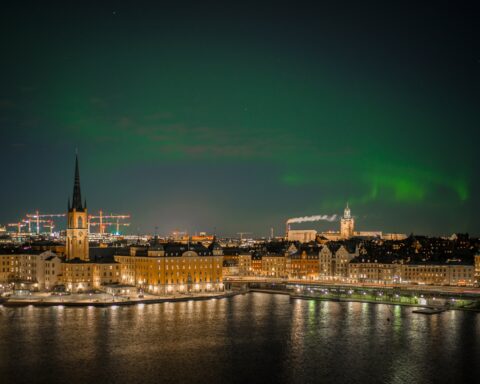
WORLD. “The Great Reset” is a rising topic as the world is glimpsing the end of the Corona-pandemic. At the center of the discussions are the mentions made in articles, videos, webinars, podcasts, and a book written by Klaus Schwab, founder of the World Economic Forum (WEF), in collaboration with economist and consultant Thierry Malleret. The term is already the pinnacle of several conspiracy theories involving the pharmaceutical industry, migration and how national democracies will be torn up and devoured by the UN. Depending on if the views are left-wing or right-wing, the term either expresses how extreme neo-liberalism or postmodernism is out to rule the world.
The language in the book is convoluted, using vague notions like “historical crossroad”, “goal-driven societies”, “cooperative solutions”, “important stakeholders”, “sustainability” and “solidarity”. Those buzzwords can be twisted to many different meanings and appear more fact-based and determined than they actually are.
The book is a Corona-take on WEF’s usual message. Rather than mastermind conspiracy text, it is an expression of currents in the international community.
For example, it is being stated that Covid-19 will change everything, although the world´s direction is rather unchanged. Even before Covid-19, similar thoughts as in “The Great Reset” were promoted, such as “increasing GDP does not guarantee an improved quality of life and social well-being”. Historically, that case is incorrect because when the economic pie grows bigger, it benefits more people when resources are used in better and smarter ways.
The West’s leadership is still glancing at China with excitement, as its government is perceived to control the economy and society through large multinational companies connected to the government. China becomes more troubling as a new cold war is emerging. However, China has been efficient in managing the investment carrot and the whip of fear in order to turn around the first impression that the pandemic would be a crisis for its leadership.
The world economy is still based on that capital from the stimulus package will strengthen the recovery, and that central-banks are enabling further assistance for a stronger recovery by keeping the interest rates low and increasing the liquidity. In a global economy doped by cheap money liquidity on the markets, the structural imbalances are growing.
“The resetters” are not looking for degrowth but a steered growth that is intended to fulfil very different goals, without considerations that those goals might be mutually exclusive. Clear policy measures such as fighting malaria and TBC or support to family planning lose out when they are pitched against well-financed and all-encompassing problems.
Processes that are energy demanding for the international community, such as revitalising the World Trade Organisation (WTO), are not present among the measures. The progress made since the millennium shift depended on the fact that many poorer countries had a high growth of GDP at the time, especially China, and there were thus simply more resources available for all. Complexity, and thereby risk of failure is increasing. Not the least because political decision-makers focus on security and precaution has strengthened fear and insecurity among the general public.
What has been missing for a long time, even before Covid-19, is reasonable increase of productivity. An active economy must increase the average amount of what every worker is producing under a certain amount of time, in order to support citizens’ material well-being. This means providing new sectors and technologies with the room to grow and help workers to make use of their skills in innovative ways.
This also means the reverse, to allow outdated or unproductive companies to fail. That stands in sharp contrast to the recent policies enabling abundant cheap credits to preserve companies – old ones as well as the hyped-up ones in the new economy.
Conspiracy theories are attractive because they are based on the wish that somewhere there is someone with a full overlook of the situation, a big plan and the assets to realise it. In reality, everyone looks over everybody else’s shoulder, developments are influenced by big and small mistakes, lack of knowledge and resources, and opponents that cancel each other. Surprisingly, most decisions are made on the spot, often following a sunk- cost fallacy.
It is not much of a globalist agenda, as old solutions looking for new problems. National politicians move up difficult issues to the international level, in order to skip having to solve them themselves.
An important part of the problem is that “the great reset” implies a continuation of “the culture of precaution” that has gained a foothold both in politics and in business. In order to get different results, experimentation, and new thinking outside of the box are necessary.

info@opulens.se






